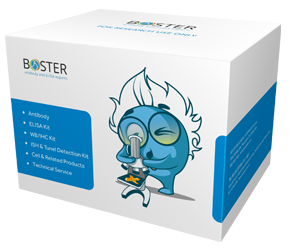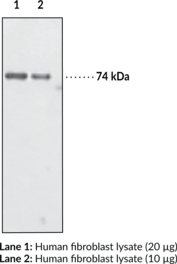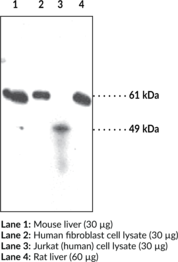Description
Amino acid sequence: QDPYV KEAEN LKKYF NAGHS DVADN GTLFL GILKN WKEES DRKIM QSQIV SFYFK LFKNF KDDQS IQKSV ETIKE DMNVK FFNSN KKKRD DFEKL TNYSV TDLNV QRKAI HELIQ VMAEL SPAAK TGKRK RSQML FRG
Source: E. coli Gln24-Gly161
Species: human
Purity: >95%, by SDS-PAGE quantitative densitometry by Coomassie® Blue Staining.
Molecular Weight: 16.1KD
Formulation: Lyophilized after extensive dialysis against PBS.
Reconstitution: Reconstitute in ddH2O at 100 μg/mL.
Endotoxin: Less than 1 EU/μg of IFNγ as determined by LAL method.
Storage: Lyophilized recombinant human Interferon gamma remains stable up to 6 months at -80°C from date of receipt. Upon reconstitution, rhIFNγ remains stable up to 2 weeks at 4°C or up to 3 months at -20°C.



